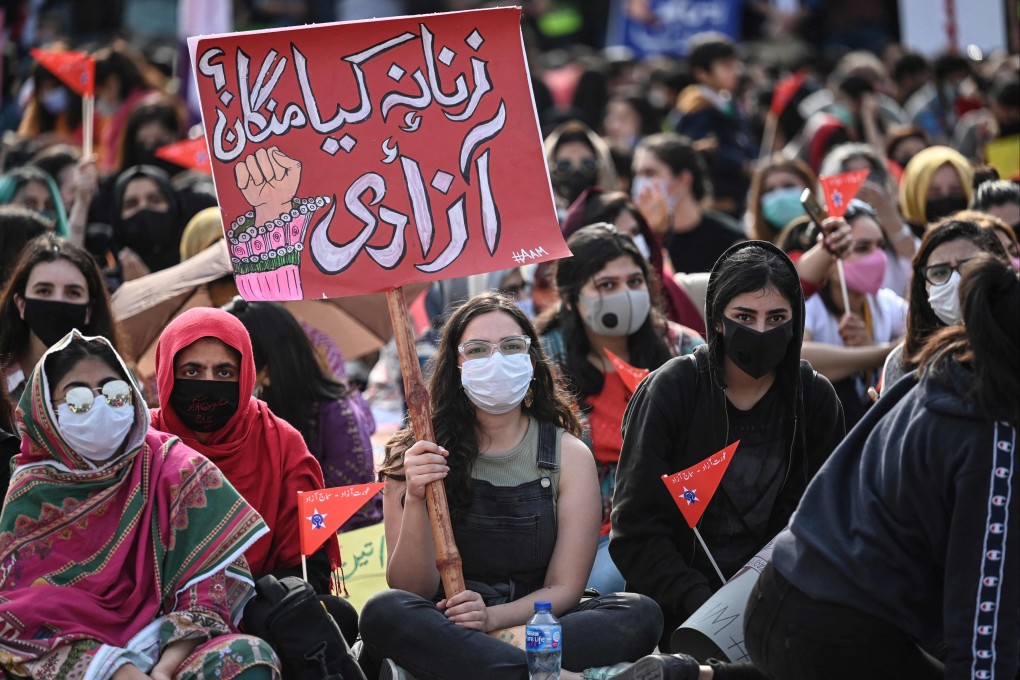Opinion | When women march for justice in Pakistan, it is out of necessity
- The annual Aurat March that brings together Pakistani women to raise a collective voice against oppression is often dismissed as a Western gimmick
- Given the prevalence of mindsets that lead to violence against women and the normalisation of this violence, however, the women’s movement must continue

Recently, Minister of Religious Affairs Noor-ul-Haq Qadri, put in a request for the prime minister to declare March 8 International Hijab Day instead, saying that the Aurat March is against Islamic teachings. Worse, the president of Jamiat Ulema-i- Islam-Fazl, a major political party led by clerics, threatened to use batons to stop the protesters.
The Aurat March brings together Pakistani women to raise a collective voice against oppression in both private and public arenas. This year, the theme of the march, to be held separately in Lahore, Karachi and Islamabad, will be different, ranging from “reimagining justice” to labour and land rights.
This reflects the way the movement is diversifying itself, a fitting response to long-standing allegations that the protesters are merely a club of privileged women in urban centres trying to appropriate the stories of all Pakistani women.
Despite their efforts to introduce a variety of issues into the mainstream discourse, march participants and organisers alike have drawn vitriol on the premise that the march promotes “obscenity” and “hooliganism”.
